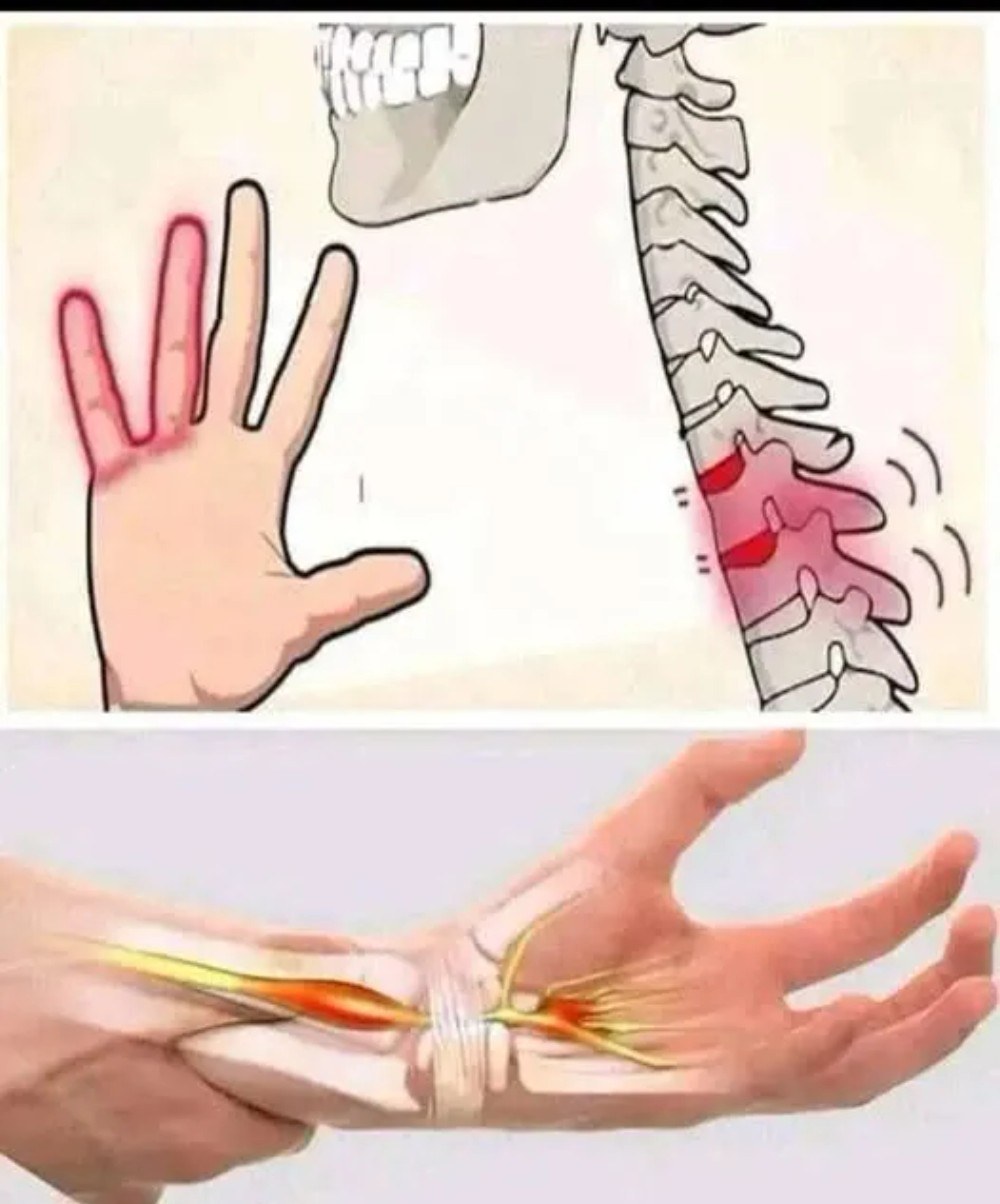Most of us have experienced it at some point: waking up with tingling hands, numb fingers, or that faint, crawling burning sensation along the skin. You slowly open your eyes, try to move your arm, and for a brief moment, it feels almost foreign—as if it doesn’t belong to you. Then, gradually, the feeling begins to return, first awkward and uncomfortable, then slowly normal. That strange pins-and-needles sensation can leave anyone momentarily unnerved, even if it fades within minutes.
It’s easy to brush off as “my arm fell asleep,” but there’s more going on beneath the surface. That tingling has a name, a cause, and sometimes a warning attached to it. The medical term is paresthesia. According to the National Institute of Neurological Disorders and Stroke, paresthesia describes prickling, buzzing, numbness, or burning sensations that can appear anywhere in the body. While it’s generally not painful, it’s certainly irritating and noticeable. More importantly, it can appear without warning—whether you’ve been asleep, sitting too long, or even during ordinary daily activity.
The most familiar type is transient paresthesia, the temporary kind triggered when you put pressure on a nerve or restrict blood flow. Sleep in a strange position, lean on your elbow too long, sit on your foot, or rest your wrist under a pillow—any of these can reliably produce that pins-and-needles feeling.
Here’s what’s happening: pressure compresses the nerve that normally sends signals to your brain, or it temporarily reduces blood flow that keeps the nerve functioning properly. When you finally shift positions, blood circulation returns and the nerve “wakes up,” producing the familiar buzzing or prickling sensation.
This form of tingling is common, harmless, and short-lived. A simple stretch, shaking out the limb, or gentle massage usually restores normal sensation within a few minutes.
But transient tingling isn’t the only type. Sometimes, tingling can point to something deeper—something unrelated to posture or temporary pressure.
Chronic paresthesia is different. It lingers. It returns frequently. It can appear in areas where you haven’t applied any pressure at all. Persistent tingling can be a sign of nerve damage or an underlying neurological issue.
Several factors can cause long-term or recurring tingling. Nerve injuries—from sports, accidents, or repetitive motions—are common culprits. Herniated spinal discs can compress nerves, sending tingling sensations down the arms or legs. Neurological conditions such as multiple sclerosis, stroke, encephalitis, or peripheral neuropathy can lead to ongoing numbness or tingling. Even more common conditions, like carpal tunnel syndrome, can trigger persistent sensations, particularly in people who type, use tools, or perform repetitive wrist movements daily. Rarely, tumors pressing on nerves can also produce similar symptoms.
Chronic paresthesia isn’t always serious, though. Sometimes, it’s linked to vitamin deficiencies—particularly B12 deficiency—or uncontrolled diabetes. It may also arise during anxiety or panic attacks, when rapid breathing alters the balance of carbon dioxide in the blood, temporarily affecting nerve function.
The key takeaway is simple: tingling that recurs, lasts longer than a few minutes, or appears without a clear cause warrants attention. While most episodes are harmless, persistent or unexplained paresthesia can indicate a more serious problem if left unchecked.
Knowing the difference comes down to observing patterns. If tingling wakes you up occasionally and you know your arm was twisted under you, there’s little cause for concern. But if it happens frequently, or if it is accompanied by weakness, pain, or difficulty moving the limb, it’s time to take it seriously.
There are practical steps to reduce the likelihood of waking up with tingling hands. Start with sleep posture. Keeping your wrists straight rather than bent, supporting your neck with a proper pillow, and adjusting arm positions can reduce pressure on nerves. Side sleepers, in particular, often compress nerves in the shoulder or arm without realizing it, so occasionally shifting positions may help.
For those who spend long hours at a desk, ergonomic adjustments can make a big difference. Proper chairs, wrist supports, and frequent breaks reduce nerve compression. People who use their hands intensively—artists, mechanics, hairdressers, construction workers—can benefit from regular stretching to keep blood flowing and joints mobile.
When tingling appears, simple movements can bring quick relief: shake out the limb, stretch the fingers and wrist, or rotate the shoulder to boost circulation. Warm water can relax tense muscles and relieve nerve pressure.
However, home remedies can’t replace professional medical advice. Severe tingling that persists for days, or that is accompanied by dizziness, muscle weakness, headaches, vision changes, or difficulty walking, requires immediate medical evaluation. These signs can indicate nerve impairment or a neurological condition that needs prompt attention.
Even milder symptoms deserve attention if they become daily occurrences or disrupt sleep. Early diagnosis is always preferable to late intervention.
Most importantly, don’t dismiss changes in your body as “no big deal.” The nervous system is complex and sensitive, sending subtle warnings when something isn’t right. Tingling may be harmless, but it could also be a signal that your body is asking for help.
For many, paresthesia is a fleeting, occasional annoyance that disappears as quickly as it comes. For others, it can be a clue pointing to an underlying health concern that deserves attention.
Experiencing persistent tingling or numbness can be unsettling. And even if you haven’t experienced it yet, chances are you will at some point in life. Understanding what it might mean—and when to seek care—can save time, worry, and potential complications.
Everyone’s experience is unique; there’s no one-size-fits-all explanation. Paying attention to your body’s signals matters. Tingling is one of the clearer ways your nervous system communicates.
Sharing experiences can help others make sense of what they’re feeling. It’s a reminder that no one is truly alone in these experiences—and sometimes, it’s exactly what motivates us to take our own symptoms seriously.
If you want, you can describe how often this happens to you and the nature of the sensation. From there, it’s possible to determine whether it’s within normal limits or worth consulting a medical professional.
